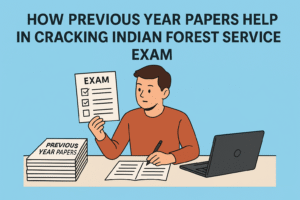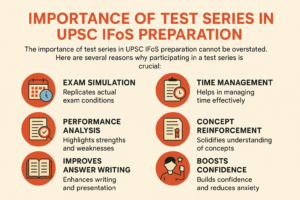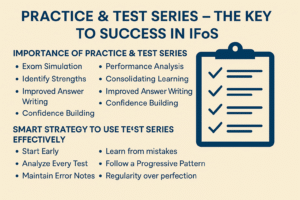Indian Polity is one of the most important subjects in the UPSC Civil Services Examination (CSE). It forms the foundation of governance, law, and administration, making it highly relevant not only for the exam but also for a future career as a civil servant. Questions from Polity appear in Prelims, Mains, and Interview, making it a high-scoring and indispensable subject.
This guide provides a detailed strategy to prepare Indian Polity for UPSC Prelims and Mains, recommended books, preparation tips, and FAQs.
Why Indian Polity is Important for UPSC?
High Weightage in Prelims: Every year, 12–15 questions are directly asked from Polity.
Crucial for Mains GS Paper II: Governance, Constitution, Polity, Social Justice, and International Relations are key topics.
Helps in Essay Writing & Ethics Paper: Constitutional values, rights, and governance form useful content for essays and ethics case studies.
Useful in Interview (Personality Test): Questions often revolve around governance, rights, duties, and administrative functioning.
UPSC Syllabus Coverage for Polity
Prelims (General Studies Paper I)
Indian Constitution and features
Fundamental Rights, Fundamental Duties, DPSPs
Union & State Legislature, Executive, Judiciary
Panchayati Raj and Local Governance
Constitutional Amendments
Important Articles and Schedules
Election Commission, UPSC, CAG, and other constitutional bodies
Non-Constitutional bodies
Mains (General Studies Paper II)
Functions and responsibilities of the Union and States
Separation of powers, dispute redressal mechanisms, and institutions
Parliament and State Legislatures – structure, functioning, powers
Judiciary – structure, organization, functioning
Appointment to various constitutional posts
Statutory, regulatory, and quasi-judicial bodies
Issues related to governance, transparency, and accountability
Role of civil services in democracy
Recommended Books for Indian Polity UPSC Preparation
NCERT Books (Class 9–12 Political Science) – For basics
M. Laxmikanth – Indian Polity – Bible for UPSC Polity preparation
D.D. Basu – Introduction to the Constitution of India – For conceptual clarity
Subhash Kashyap – Our Constitution & Our Parliament – For deeper insights
2nd ARC Reports & Punchhi Commission – For governance and reforms
PRS India Website – For latest bills, laws, and policy analysis
Strategy to Prepare Indian Polity for UPSC
Step 1: Build Basics with NCERTs
Start with Class 9–12 NCERT Political Science books.
Focus on concepts like democracy, rights, governance, and the Constitution’s framework.
Step 2: Master Laxmikanth
Read M. Laxmikanth’s Indian Polity multiple times.
First reading: Understand concepts.
Second reading: Highlight and make notes.
Third reading: Revise and practice MCQs.
Step 3: Link Current Affairs with Polity
Follow The Hindu, Indian Express, and PIB for updates on governance, Supreme Court judgments, constitutional amendments, and parliamentary debates.
Relate these with static topics (e.g., Supreme Court judgment → Judiciary, Fundamental Rights).
Step 4: Make Short Notes
Prepare notes on important Articles, Schedules, and landmark cases.
Example:
Article 21: Right to Life → Linked with recent Supreme Court judgments.
Schedule X: Anti-defection law.
Step 5: Practice Previous Year Questions
Solve last 10 years of UPSC Prelims Polity questions.
Analyze patterns (e.g., more focus on fundamental rights, federalism, governance).
Step 6: Prepare for Mains Answer Writing
Practice writing answers for GS Paper II with structure: Introduction – Body – Conclusion.
Use case studies, recent examples, and constitutional provisions.
Step 7: Revise Regularly
Weekly revision of important Articles.
Create mind maps of Union Government, State Government, Constitutional Bodies.
How to Cover Polity in Limited Time?
Focus on Laxmikanth + Current Affairs if short on time.
Revise frequently instead of reading multiple sources.
Solve daily MCQs to strengthen concepts.
Conclusion
Indian Polity for UPSC is a scoring subject if prepared with the right strategy. Stick to limited resources (NCERT + Laxmikanth), revise multiple times, and integrate current affairs. Since Polity forms the foundation of governance, it will help you not only in Prelims and Mains but also in Interview and your career as a civil servant.
FAQs on Preparing Indian Polity for UPSC
Q1. Is M. Laxmikanth enough for Polity in UPSC?
A: Yes, it is the most recommended book. However, supplement it with NCERTs and current affairs for complete preparation.
Q2. How many questions come from Polity in Prelims?
A: On average, 12–15 questions appear every year, making it one of the most important subjects.
Q3. How to prepare Polity for Mains GS Paper II?
A: Focus on governance issues, judicial reforms, electoral reforms, and link them with current affairs and constitutional provisions.
Q4. Should I memorize Articles of the Constitution?
A: You don’t need to memorize all, but remember important ones (e.g., Article 14 – Equality, Article 19 – Freedom of Speech, Article 21 – Right to Life).
Q5. What is the best way to revise Polity before Prelims?
A: Revise short notes, highlight important Articles, and solve previous years’ questions.
Q6. Is Polity relevant for UPSC Interview?
A: Yes, questions on governance, rights, duties, and Constitution are common in the Personality Test.
✅ SEO Keywords Included: Indian Polity for UPSC, UPSC Polity preparation, Indian Polity strategy, M. Laxmikanth for Polity, UPSC Polity syllabus, how to study Polity for UPSC, IAS Polity preparation.










